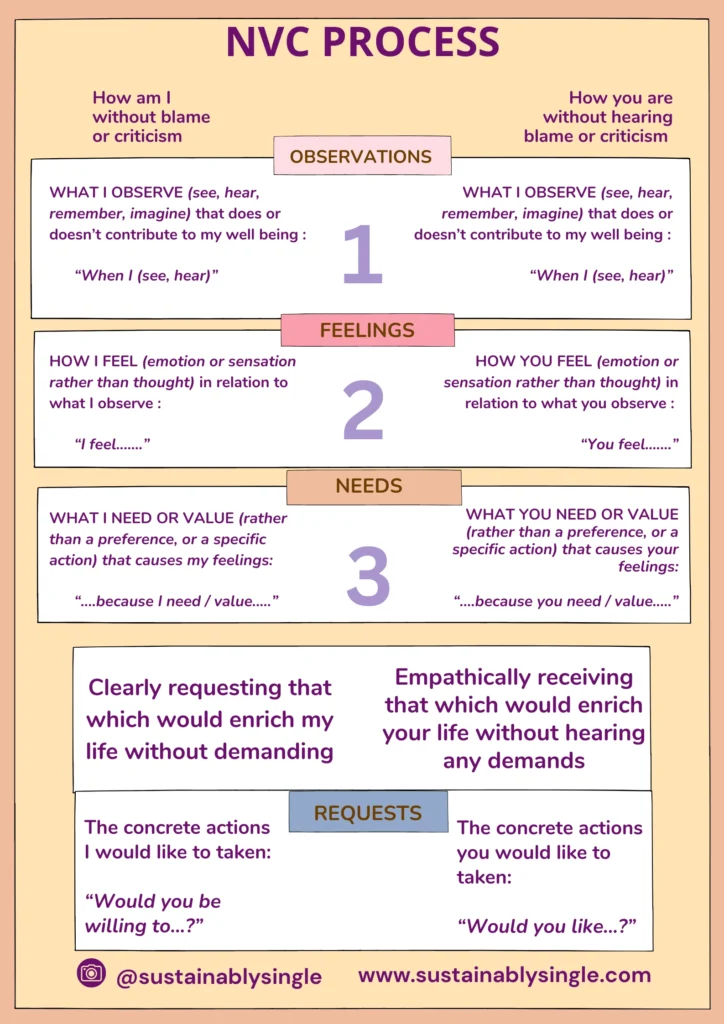The Antiquated Script Doesn’t Apply Any More
Table of Contents
A new generation of women who desire more than just the title is challenging and reshaping these relationship roles, previously established by tradition and patriarchal ideals. The concept of what it means to be a wife has taken on new dimensions, especially for women in their 30s, many of whom are educated, driven by their careers, and spiritually curious. Based on equity, emotional intelligence, and aligned partnership, we are tearing down the old scripts and creating new ones.
Wives were expected to be caregivers, housewives, emotional support systems, and peacekeepers for many years.
Modern wives are asking themselves, “What serves us — and me?” rather than, “What should I do?” as we shift from inherited relationship roles to self-defined identities. Tools for personal growth that promote relational evolution have become increasingly popular as a result of this change. Today, therapy is a rite of passage rather than a last resort. To better understand themselves within relationships, women are turning to spiritual and practical modalities.
These practices, which include learning to control the nervous system, rewiring attachment styles, and healing generational trauma, are fundamental. The language, emotional fluency, and inner grounding that women need to rethink marriage on their terms are being provided by modalities such as somatic therapy, breathwork, and nonviolent communication. Roles become flexible rather than fixed in this situation. The examples that follow demonstrate how mindful wives are utilizing these resources to change ingrained behaviors into more powerful, new forms of interaction.

Relationship Roles: From Obligation to Conscious Choice
Relationship roles are being intentionally approached in contemporary partnerships, particularly among millennial and Gen Z couples. Couples are now defining their roles together rather than relying on traditional dynamics. Even though it’s no longer expected, a modern wife may still prepare dinner. She might be the leading provider or the one who takes a break to work on her artistic endeavors. Today, these choices are made with more conscious awareness.
Modern wives are co-creating relationship roles with their partners, replacing assumed duties with open dialogue. In pursuit of this transformation, many are turning to various therapeutic modalities to understand and heal the underlying patterns that keep them trapped in traditional roles, such as:
🔸 Modality Example: Inner Child Work
Through inner child healing, one woman realized she constantly over-functioned in relationships to feel safe and worthy — a pattern rooted in early experiences of neglect. This awareness helped her step out of the “fixer” role in her marriage and ask for shared emotional responsibility. Instead of absorbing all emotional labor, she invited her partner to co-create rituals for weekly check-ins, making space for mutual care rather than mothering.
Boundaries, emotional labor, attachment styles, and partner accountability are examples of psychological terms that are now commonly used in daily speech. These ideas encourage women to consider how they show up in relationships.
Did I choose this role? Or because I’ve been indoctrinated to think it belongs to me?
The Wife as an Emotional Anchor: A New Paradigm
Women have traditionally been expected to be the emotional caregivers in the home, sensitive to everyone’s needs but frequently aloof from their own. Despite being normalized, this dynamic is no longer viable. The modern wife is embracing interdependence and unlearning codependency, where support is reciprocal rather than one-sided, and both partners are able to control their emotions. This change necessitates healing in addition to open communication. In order to avoid settling for a relationship in which they are the only emotionally available adult, many women are entering marriage after completing inner work such as trauma processing, therapy, breathwork, and somatic healing. They seek out relationships that are conscious and in which both partners are expected to be vulnerable.
Today, partnership means both people are expected to self-regulate, communicate, and support each other, rather than relying on one person as the emotional backbone. This shift often requires deep personal work, as women explore alternative approaches that help them identify and transform the unconscious beliefs and behaviors that perpetuate unequal dynamics.
🔸 Modality Example: Somatic Therapy
A designer and her spouse observed that she consistently felt exhausted following each argument. She discovered in somatic therapy that her body’s reaction to conflict was to freeze, a pattern of the nervous system brought on by childhood trauma. She now takes a moment to ground herself with breathwork before answering, thanks to practice. In order to turn conflict into connection, she and her spouse started monitoring their body language and employing somatic check-ins prior to intense discussions.
The Modern Alchemy: Feminine Energy Meets Drive
For many contemporary women, particularly those pursuing creative or entrepreneurial endeavors, combining ambition and feminine energy is not a contradiction but rather a superpower. Today’s conscious women are reclaiming femininity as intuitive, powerful, and completely compatible with drive, in contrast to previous narratives that framed success as requiring the abandonment of softness.
🔸 Modality Example: Divine Feminine Embodiment Practice
After attending a women’s retreat, one entrepreneur developed a morning ritual that combined dance, affirmations, and visualization. This practice is known as divine feminine embodiment. Before attending board meetings, this enabled her to access her intuition and sensuality. Her spouse saw that she was more grounded, radiant, and present, which also improved their marriage. She discovered how to embody both tenderness and power, so she didn’t have to choose between the two.
It is no longer necessary to give up oneself or to dim one’s ambition in order to be a modern wife. Rather, marriage turns into a sacred partnership where both partners are free to develop, grow, and express their entire selves. Without compartmentalizing who she is, a woman can confidently lead a boardroom presentation by day, create beauty and warmth in her home by night, and engage in a deep emotional connection with her partner by night. When roles in relationships are rooted in mutual respect and fluidity, integration replaces imbalance.
Navigating Power Dynamics with Emotional Intelligence
The way power is negotiated is one of the most significant shifts in contemporary relationship roles. In the past, marriage frequently meant that the wife performed emotional and domestic work while the husband held social and financial authority. Now these distinctions are hazy, though not always removed. Emotional intelligence becomes crucial in this situation.
🔸 Modality Example: Nonviolent Communication (NVC)
(NVC is a four-step framework for clearly and empathetically communicating needs. In order to promote understanding between people, it places a strong emphasis on observation, feelings, needs, and requests. NVC is crucial for conscious, emotionally intelligent communication in modern relationships because it assists partners in establishing boundaries, resolving conflict, and co-creating connection without assigning blame.)

One couple decided to use nonviolent communication after numerous arguments over unrecognized housework.
“When the dishes pile up and I clean them alone, I feel overwhelmed because I need partnership,” the wife said using NVC.
Three nights a week, would you mind sharing this task with me? Instead of placing blame, this language fostered cooperation. They developed relational fluency by gradually implementing NVC in the areas of sex, parenting, and money.
The mental strain of remembering anniversaries, making appointments, and managing household dynamics is something that modern wives are beginning to recognize as invisible labor.
Roles are flexible in emotionally intelligent relationships, changing as circumstances change — a true sign of relational maturity.
Additionally, they are learning how to ask for assistance, set boundaries without feeling guilty, and start discussions about equity rather than just equality. Keeping score is not the point. It’s about developing a relationship in which both parties are respected, seen, and open to change.
Redefining Intimacy and Partnership
The reimagining of intimacy is a fundamental aspect of the experience of the modern wife. Intimacy is much more than just physical contact for today’s conscious woman, particularly those in their 30s. It can be found in shared values, emotional receptivity, and a life vision that feels co-written. This deeper comprehension frequently results from introspection, especially when it comes to attachment theory, which shows how our early relationships influence our adult dynamics. Many contemporary wives are consciously fostering safe, functional relationships based on mutual care, trust, and clarity as they recover from anxious or avoidant tendencies.
Spiritual intimacy is also a part of intimacy. By participating in common practices such as breathwork, meditation, intentional travel, or plant medicine ceremonies, more couples are exploring sacred partnership. These activities strengthen their bond with a higher sense as well as with one another. In this context, the wife is not an emotional caretaker or background support — she is a conscious co-creator, showing up with her full self and calling her partner to do the same.
🔸 Modality Example: Attachment Style Coaching
A woman who identified as anxiously attached started working with an attachment coach to break down her people-pleasing, over-texting, and abandonment-fearing patterns. Her marriage grew stronger as she established safe routines like self-soothing, making straightforward requests, and establishing boundaries. For the first time in years, her partner, who had previously been emotionally reticent, felt comfortable sharing his feelings. Intimacy shifted from performance to presence.
Evolving Beyond the Role: Honoring the End, Embracing the New
It’s also critical to recognize that leaving a relationship that no longer works out may be a part of the modern wife’s journey. Once considered taboo, divorce is now viewed as a brave act of self-honor rather than a failure. Many women are coming to the realization that it is more harmful to remain in a role that hinders their personal development than it is to endure the discomfort of change.
🔸 Modality Example: Breathwork and Guided Visualization
A woman going through a divorce used transformational breathwork to let go of her intense guilt and grief. She relived important memories of her marriage and pictured herself taking back control during sessions. She was able to rewrite her story as a complete, developing human being rather than a failed wife thanks to this somatic release, which also helped her to stop blaming herself. She later called in new relationship dynamics that matched her development using the same modality.
The identity of the modern wife is no longer dependent on her marital status, regardless of whether she is single, remarried, or purposefully uncoupled. It is based on her principles, her voice, and her life goals.
The Role Is Yours to Define
Agency is central to this evolution. The modern wife defines her role based on her inner truth rather than social norms. Partnership is important to her, but not at the expense of herself. She could be a mother, a CEO, a healer, an artist, or any combination of these. Authenticity, rather than a list of duties, is what ties modern wives together.
Relationship roles are now living agreements that change over time as a result of self-awareness, love, and time.
Being a wife in today’s world doesn’t come with a manual — and that’s the gift. For the woman who is navigating love, identity, creativity, and self-healing, marriage can be a deeply fulfilling partnership if it honors who you really are. And if it doesn’t? You have the wisdom and strength to pivot.
The role of a modern wife is whatever you decide it to be — defined not by duty, but by conscious choice.

